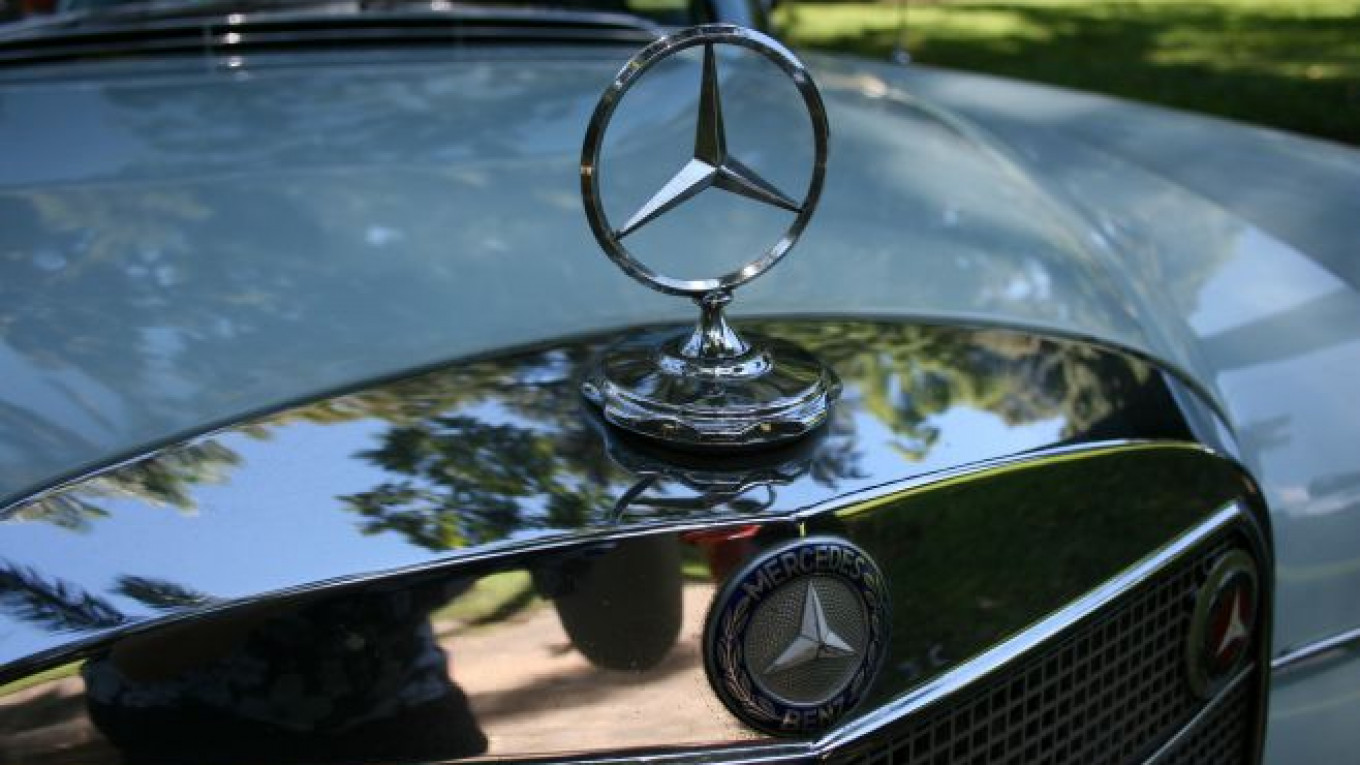Russia may tighten retaliatory sanctions against Western nations to include a ban on imports of cars, if the United States and the European Union impose additional sanctions on Moscow, Vedomosti reported Monday.
The impact of the measure on many foreign automakers would be softened because their factories inside Russia would not be affected, but high-end brands such as Daimler AG's Mercedes-Benz could be more vulnerable as they have to be imported.
Nobody at Daimler was immediately available for comment.
The West accuses Russia of arming separatist rebels in Ukraine, an allegation Moscow denies. Western governments imposed sanctions on Moscow, including on its financial and energy sectors, and Russia has already hit back by stopping imports of many food products.
Vedomosti reported that a ban on vehicle imports was among additional proposals put before President Vladimir Putin, saying he had rejected the idea but it remained an option in the event that Western nations impose new sanctions on Russia.
Citing an unnamed government source, the paper said Russia may fully or partly ban imports of cars from countries which impose sanctions on Moscow, though it also quoted another source saying the government had not yet been instructed to prepare the introduction of any new measures.
Russia's Industry and Trade Ministry had no immediate comment.
The article did not specify if the proposed ban would cover all imported vehicles, including trucks and buses as well as passenger cars.
Imports accounted for 27 percent of passenger car sales in the first half of 2014, while for trucks and buses the proportion was 46 percent and 13 percent respectively, Vedomosti said.
Local Production
Foreign carmakers have invested about $5 billion in setting up local production in Russia since the mid-2000s. The government encouraged the trend by raising import duties on cars and lowering tariffs on parts.
U.S. automaker Ford, Germany's Volkswagen, France's Renault, Japan's Toyota and South Korea's Hyundai are among those which produce locally.
Daimler has a joint venture with Russian truckmaker KamAZ to assemble Mercedez-Benz trucks in Russia, but it does not make passenger cars in Russia.
The firm's saloons are heavily favored by Russia's wealthy classes. According to the AEB Automobile Manufacturers Committee, sales of Mercedes-Benz cars in Russia stood at 44,376 in 2013, up 19 percent on 2012.
That accounts for just more than 3 percent of Mercedes-Benz global car sales last year.
The other big luxury car brand in Russia, BMW, has a Russian production facility. Sales of BMWs reached 42,071 last year, up 12 percent from 2012.
A ban on Western car imports could benefit Asian manufacturers, such as China's Great Wall Motors, Chery Automobiles and South Korea's SsangYong. Some of them have also set up or announced plans to set up local production in Russia.
See also:
Russia Bans Food Imports From U.S., EU, Australia, Canada, Norway
A Message from The Moscow Times:
Dear readers,
We are facing unprecedented challenges. Russia's Prosecutor General's Office has designated The Moscow Times as an "undesirable" organization, criminalizing our work and putting our staff at risk of prosecution. This follows our earlier unjust labeling as a "foreign agent."
These actions are direct attempts to silence independent journalism in Russia. The authorities claim our work "discredits the decisions of the Russian leadership." We see things differently: we strive to provide accurate, unbiased reporting on Russia.
We, the journalists of The Moscow Times, refuse to be silenced. But to continue our work, we need your help.
Your support, no matter how small, makes a world of difference. If you can, please support us monthly starting from just $2. It's quick to set up, and every contribution makes a significant impact.
By supporting The Moscow Times, you're defending open, independent journalism in the face of repression. Thank you for standing with us.
Remind me later.






